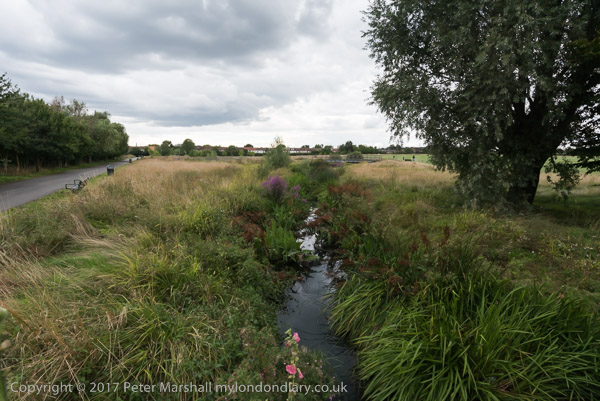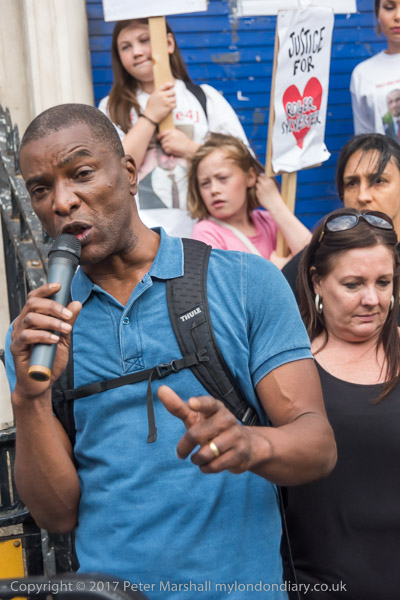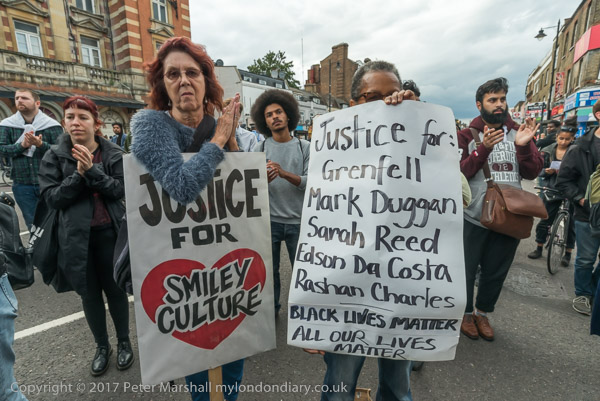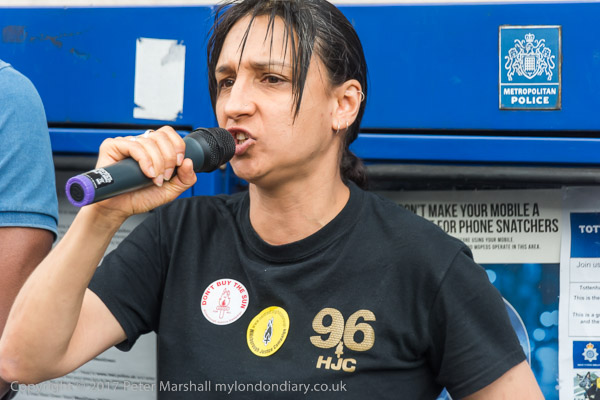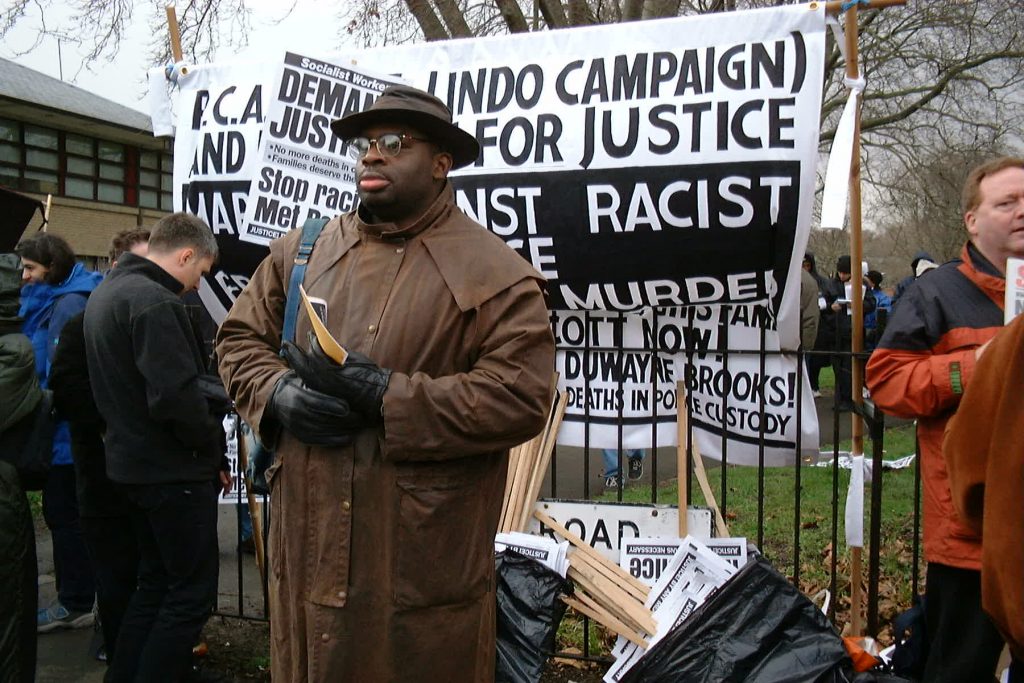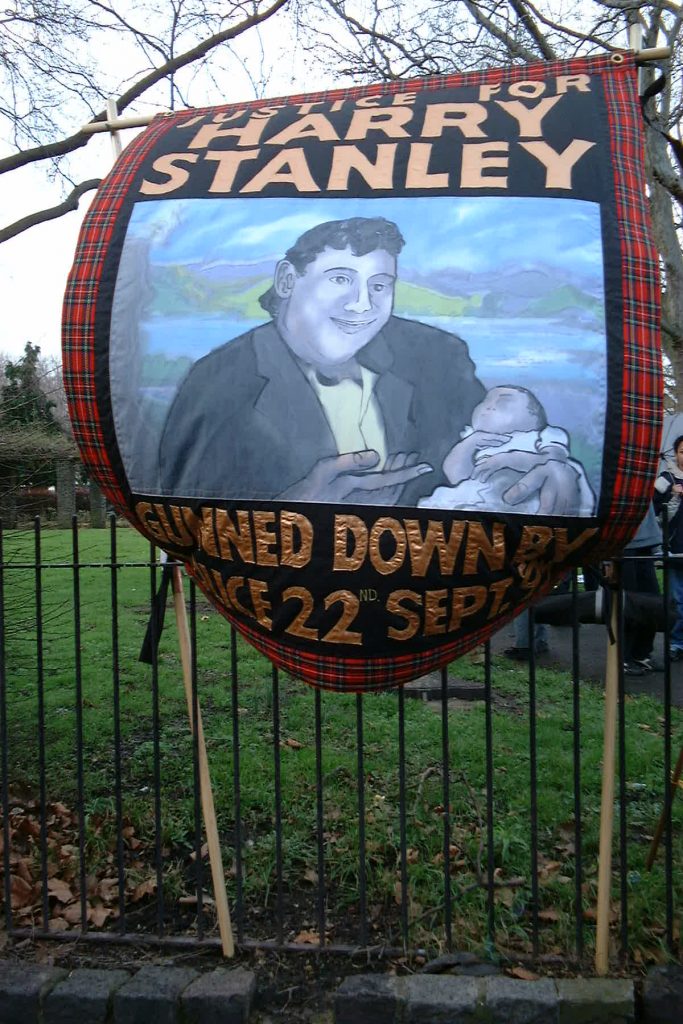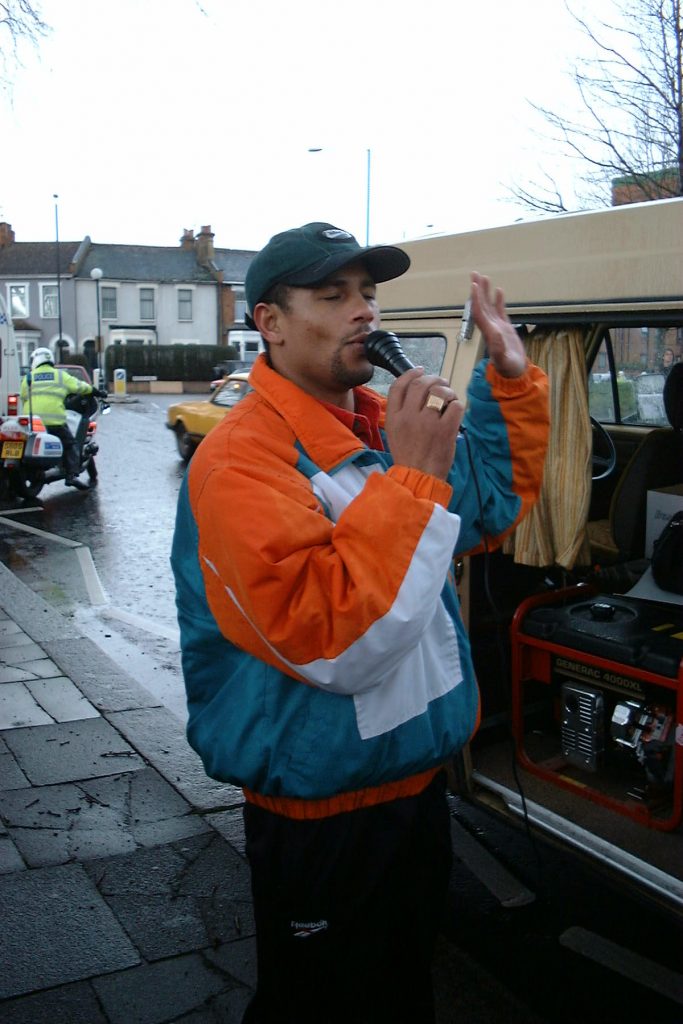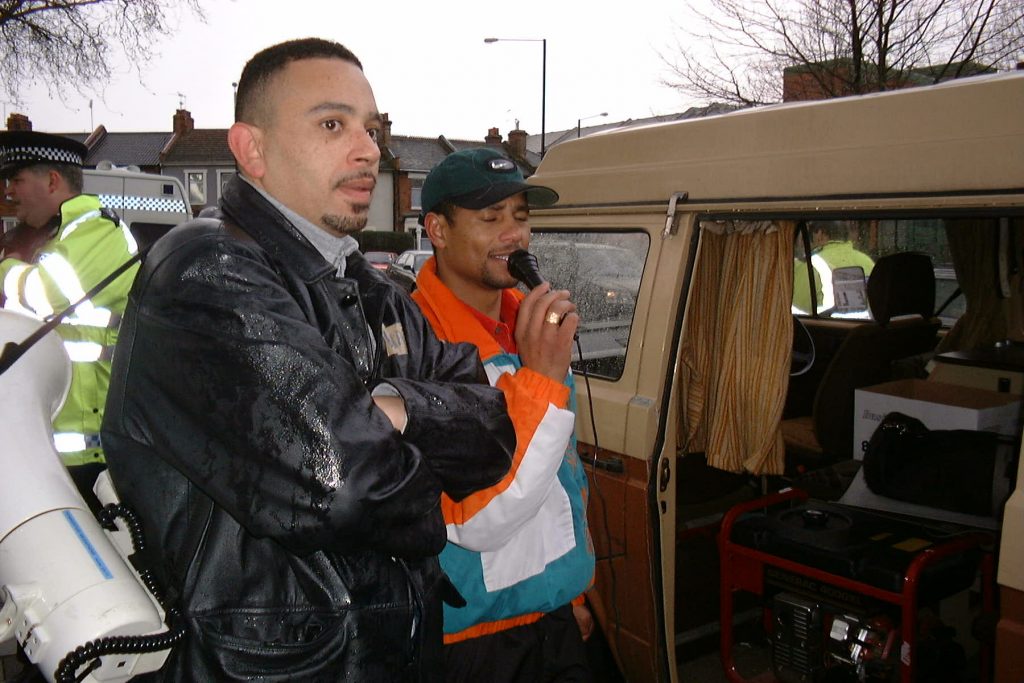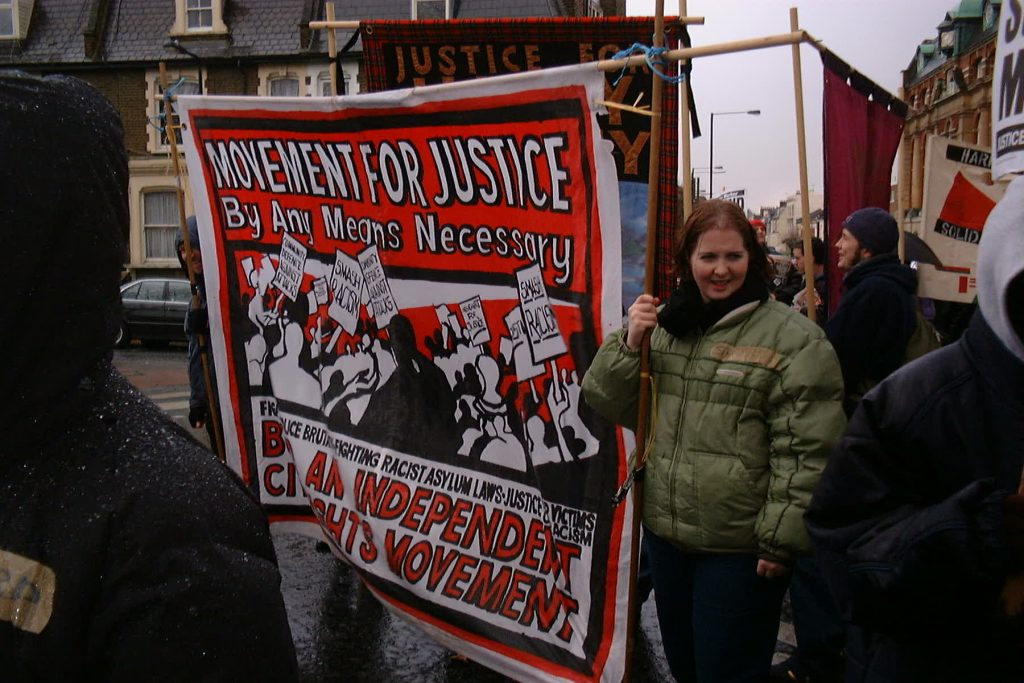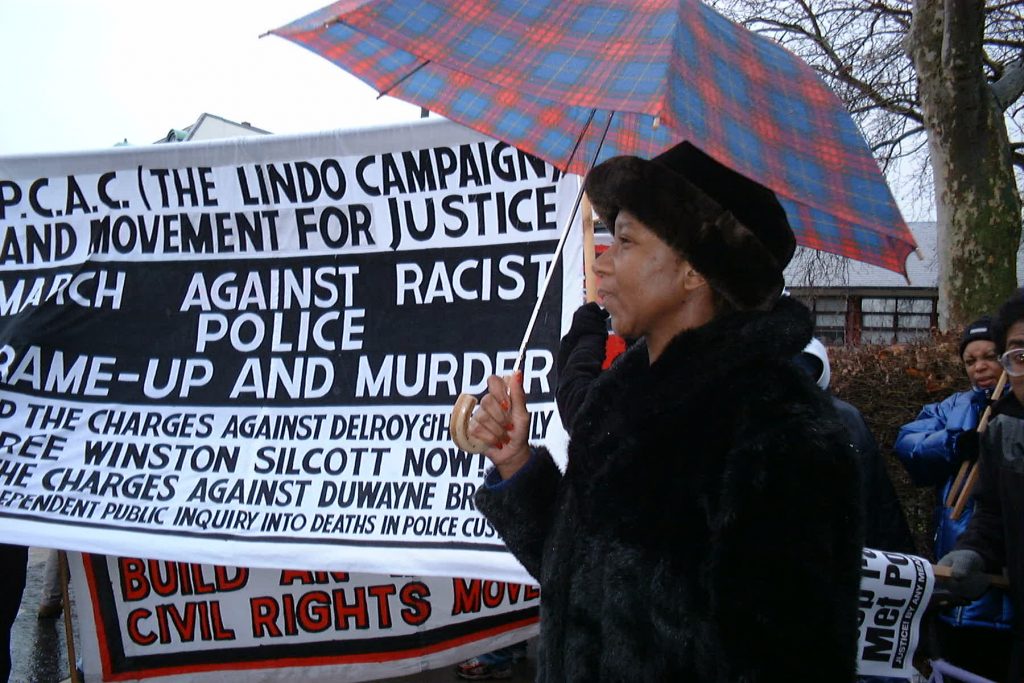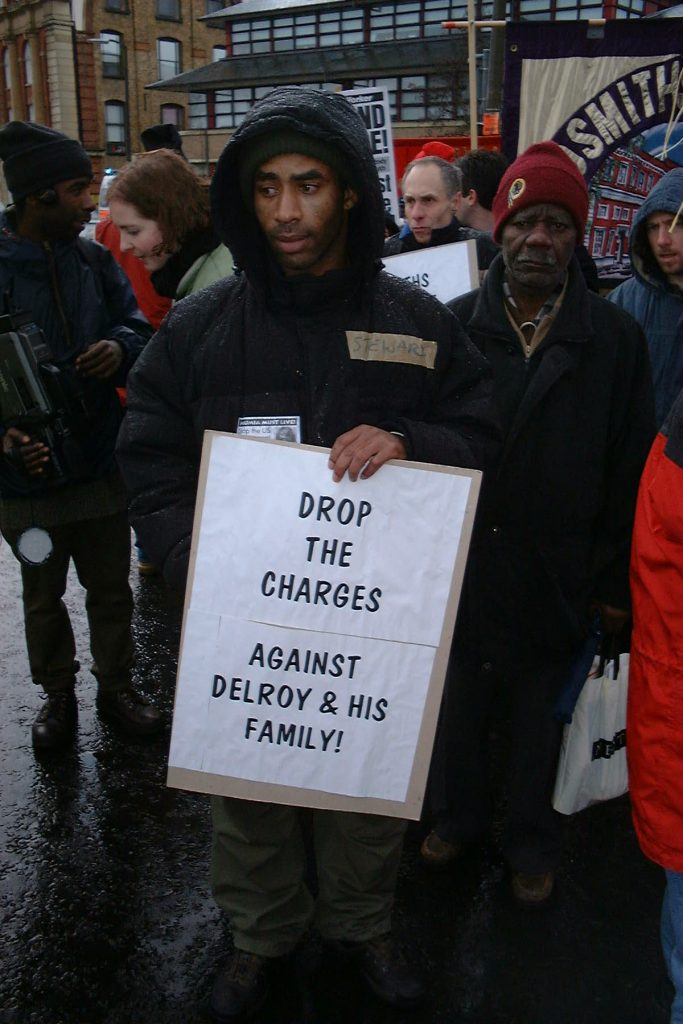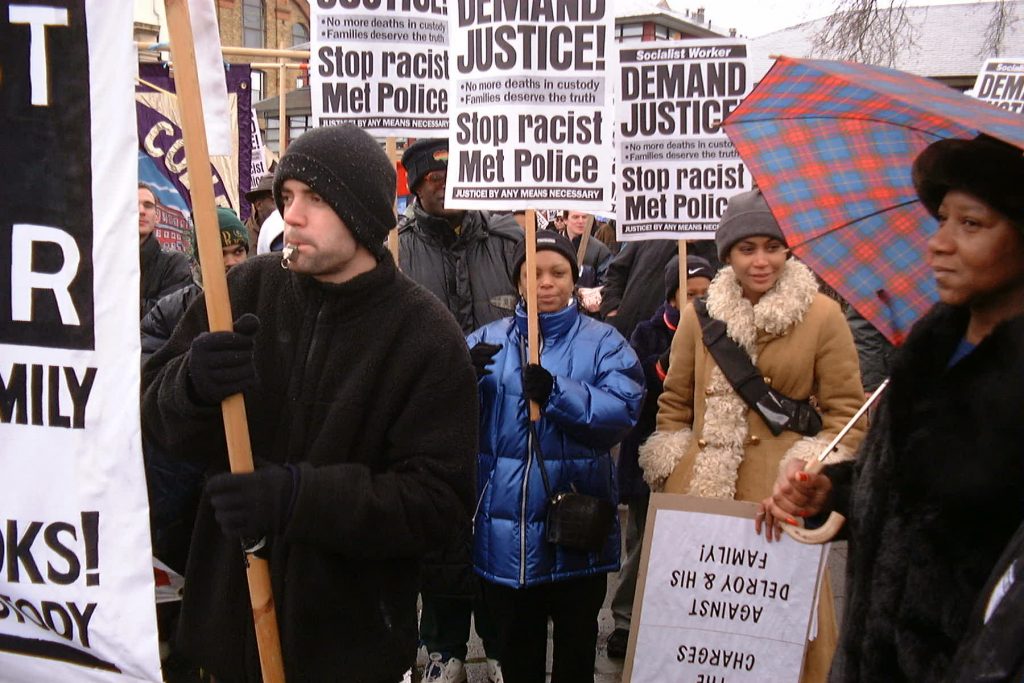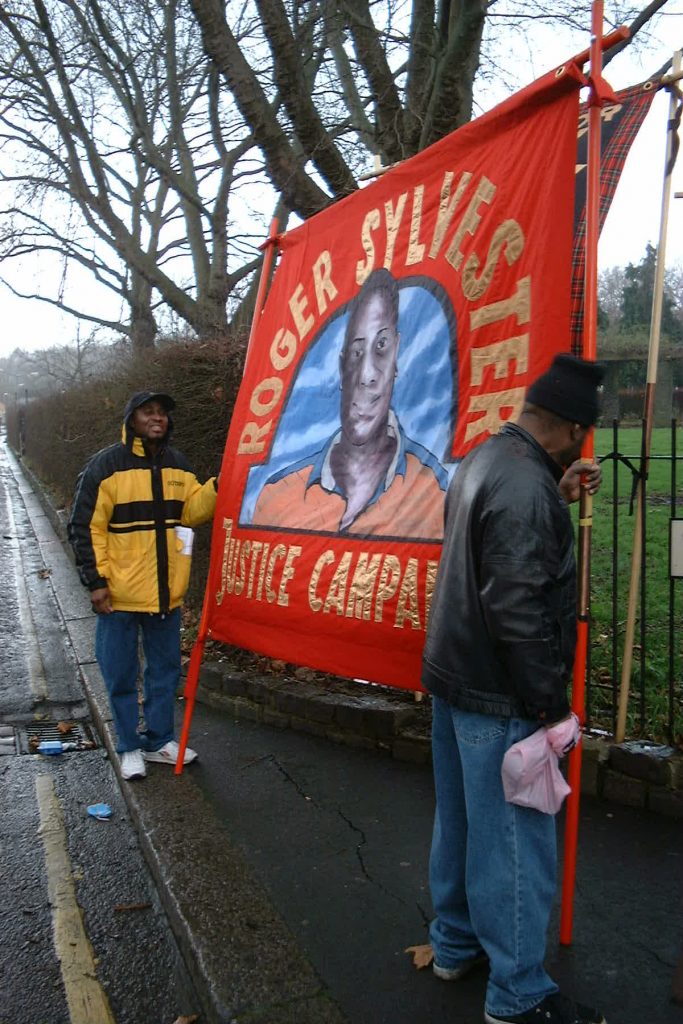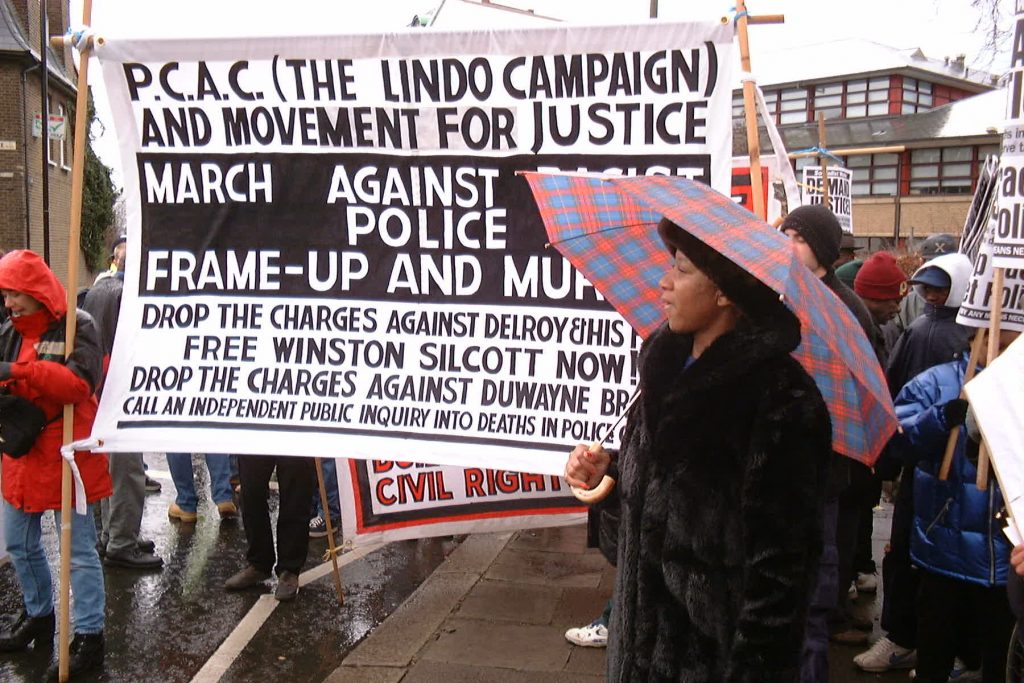Broadwater Farm & Mark Duggan: On Sunday 4th August 2017 I went to Tottenham to cover the march on the 6th anniversary of Mark Duggan being killed by police, and arriving early I took a walk around the Broadwater Farm Estate.
Broadwater Farm Estate – Tottenham
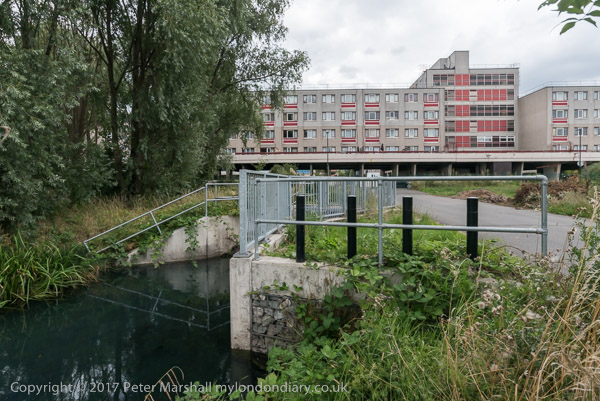
You can read the real story of the Broadwater Farm Estate on the excellent Municipal Dreams web site. In 1961 Haringey Council had a shortfall of 14,000 homes with many families living in squalid conditions in rented accommodation in overcrowded and run down Victorian back to back slums.
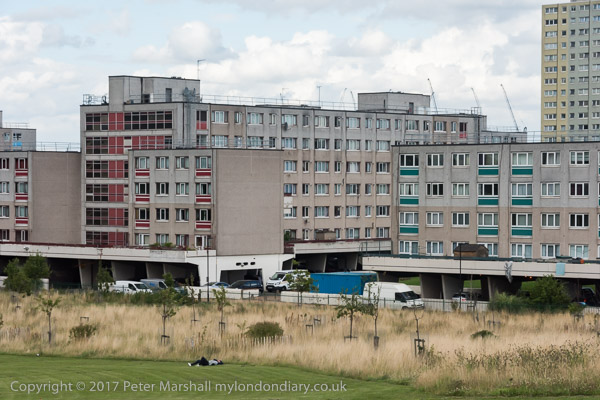
The estate was built on former allotments next to the Lordship Recreation Ground and above the River Moselle which was culverted. Its design was strongly influenced by the work of Le Corbusier and used ‘piloti’ to raise the homes above ground level both to combat the perceived flood risk from the river and to segregate pedestrians from traffic on walkways with the the ground level providing extensive parking for residents’ cars.
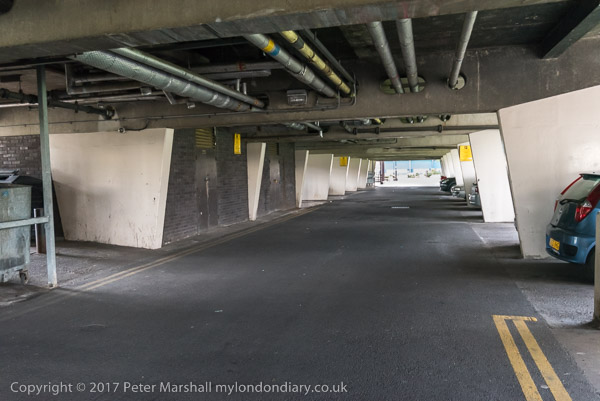
Construction began in 1967 and ended in the early 1970’s. The 1063 new homes were built to high standards, spacious and with all the ‘mod cons‘ expected in that era and with ‘constant hot water for heating and domestic use…supplied to all homes from the central oil-fired boiler’.
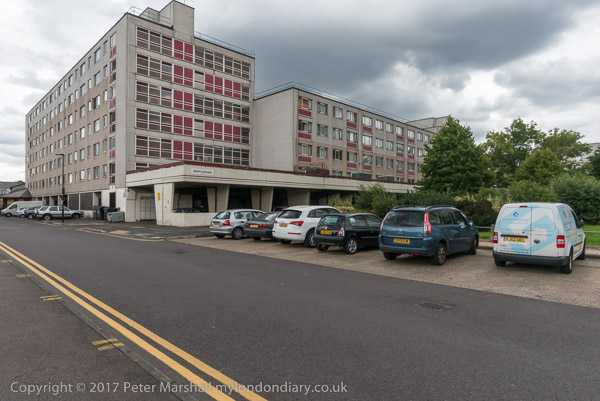
Things didn’t work out quite as expected, and although people were delighted at first, problems soon emerged. Flat roofs leaked, the heating system proved inefficient and noisy and there were cockroach infestations, lift breakdowns and fires of rubbish.
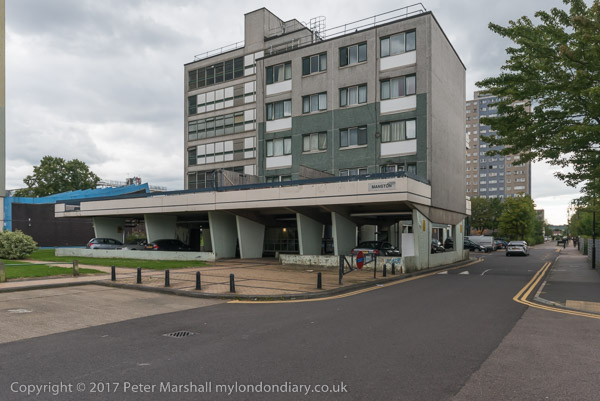
The huge parking spaces under the buildings were underlit and hidden from sight and “physically created a concrete ‘underworld’ for crime to thrive” and the many pedestrian walkways proved ‘impossible to police‘.” There were racial tensions too – the Tenants’ Association initially excluded black members and “its president was forced to resign in 1974 after a TV appearance speaking on behalf of the National Front.”
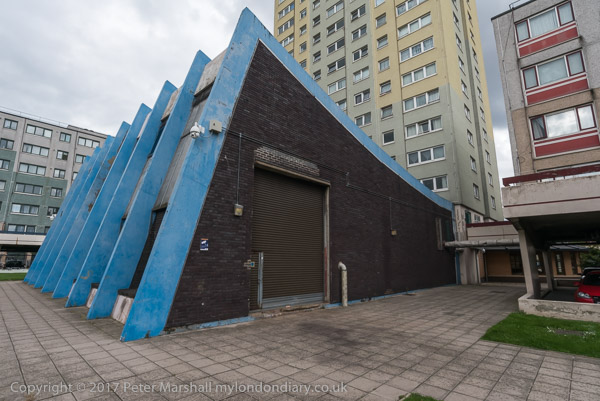
It became harder for the council to find tenants for the flats and the estate became a ‘dumping ground’ for difficult and disadvantaged tenants. In 1979 it became part of the government’s Priority Estates Project and Haringey council and the estate residents had mobilised to improve things. By 1984 homes were no longer hard to let and crime had been much lowered.
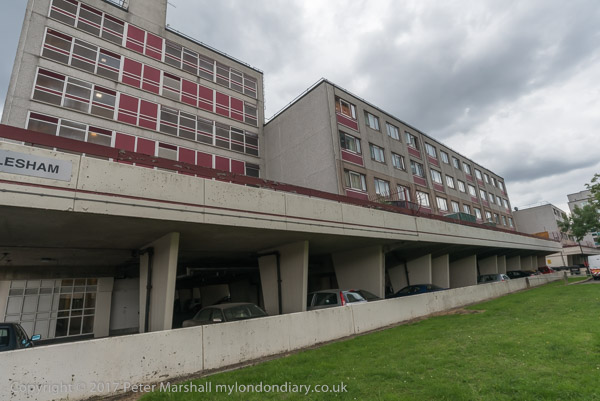
But policing was increasingly a problem, with many residents experiencing “heavy-handed and oppressive policing“. Things – as a second post on Muncipal Dreams details – came to a head after police raided the home of Cynthia Jarrett close to the estate looking for her son Floyd, a leading member of the Broadwater Farm Youth Association (BFYFA). She died of heart failure during the raid, and the following day, Sunday 6th August 1985, protesters set out from the estate to march for a peaceful protest outside Tottenham Police Station.

They were met and stopped by police in full riot gear, who sealed off all routes from the estate and a seven-hour riot began. As I wrote in 2017 “more and more police came into the estate with firefighters who put out a small fire. Faced by increasing attacks from residents the police withdrew, but two officers failed to escape. PC Richard Coombes was seriously injured and PC Keith Blakelock was beaten and hacked to death.”

Municipal Dreams continues: “A full-scale state of siege followed. Four hundred police officers occupied the Estate over the following weeks and some 270 police raids took place over the next six months. Some 159 arrests were made.” The inquiry into the disturbances at Broadwater Farm concluded that it “was essentially about policing – police activity and police attitudes.“
Work to improve the estate continued, helped in 1986 by a £33m grant from the Government’s Estate Action programme which enabled huge changes to the structures, eventually removing the walkways and bringing life to the ground level and with the BYFA leading improvements in the environment. By 2003 dit had become “a stable and safe community.”

The shooting of Mark Duggan, raised on the estate, by police on 4th August 2011 led to another march from Broadwater Farm to Tottenham Police Station three days later which sparked riots on Tottenham High Road and other areas of London and other towns and cities. Broadwater Farm was not the cause of these disturbances, which again were largely provoked by “a widespread resentment of police behaviour.“
Improvements to the estate continued after this but it is now under threat from further so-called regeneration which would see it “as ‘improved’ by importing middle-class owner-occupiers and private renters.“
Tottenham remembers Mark Duggan
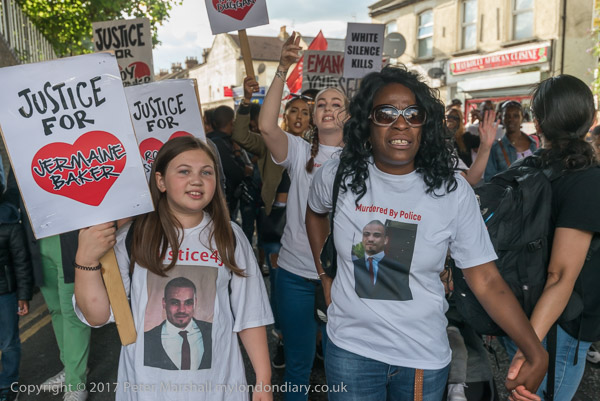
People met on Willan Road in the centre of the Broadwater Farm Estate for a peaceful march to a rally at Tottenham Police Station on the sixth anniversary of the shooting of Mark Duggan by police. The marchers included members of his family and the family of Jermaine Baker, shot dead by police on 11th December 2015 in Wood Green.
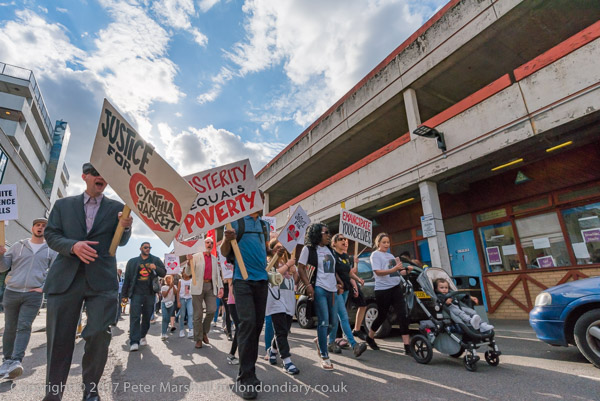
Baker was unarmed and although a public inquiry found there had been a failings in the police operation that his killing was lawful and no criminal charges would be brought against any police officers although one would face gross misconduct proceedings.

Mark Duggan’s shooting had been accompanied by various false reports from the police and officers gave contradictory evidence at the inquest, where finally after weeks of deliberation the jury in January 2014 returned an 8–2 majority verdict that his death was a lawful killing. Legal challenges to the verdict were later rejected but in 2019 Duggan’s family accepted a settlement of their civil claim from the Met.
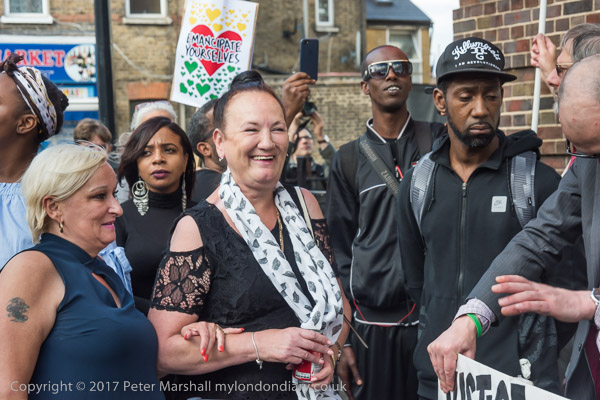
Speakers outside Tottenham Police station remembered the police killing of other members of the Tottenham community apart from Duggan and Baker – Cynthia Jarrett, Joy Gardner, Roger Sylvester, and the recent murders of Rashan Charles, Darren Cumberbatch and Edson Da Costa.

As well as a minute of silence, speakers from the two families and local activists including Stafford Scott there were also speeches from Becky Shah of the Hillsborough campaign and from the Justice for Grenfell campaign.
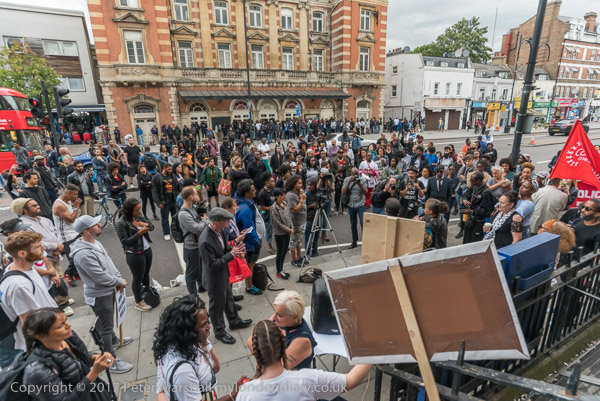
Many more pictures on My London Diary at Tottenham remembers Mark Duggan.
Flickr – Facebook – My London Diary – Hull Photos – Lea Valley – Paris
London’s Industrial Heritage – London Photos
All photographs on this page are copyright © Peter Marshall.
Contact me to buy prints or licence to reproduce.
